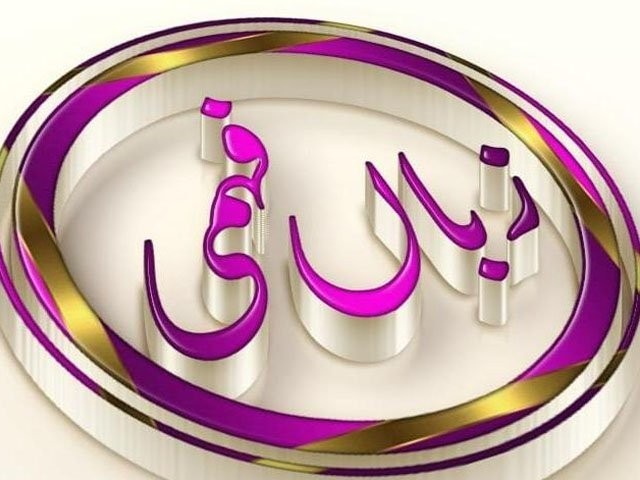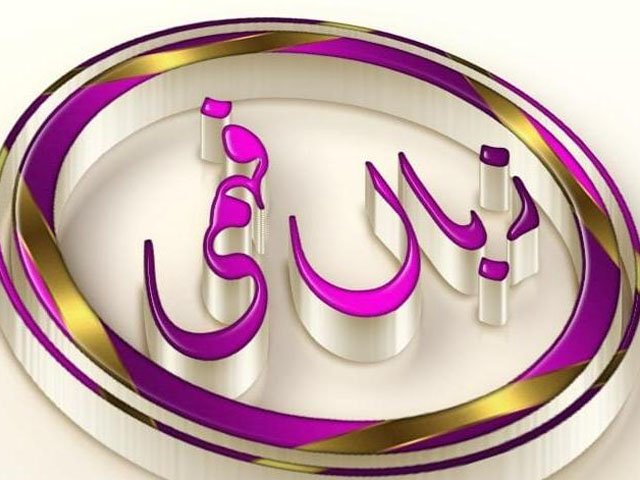
language comprehension 181; Relation of Urdu to Punjabi (Part Two) Written by: Sohail Ahmed Siddiqui, Photo: Daily Express
Karachi: Among the Rekhta-style poems, the earliest Rekhta is attributed to Sheikh Fariduddin Ganj Shakar (1173-1265 AD), besides some of his Urdu phrases are also found. After him, Sheikh Usman, Sheikh Junaid and Munshi Wali Ram. It is the turn of the relics which belong to the 11th century Hijri.
Among the miscellaneous poems of the twelfth century Hijri, most of the Sufi poems are included, most of them in the glory of Hazrat Ghous-ul-Azam. Since such poems are found in large numbers, I have selected only a few.
This shows that the Urdu language was mostly cultivated in the lap of the monks. The reason is obvious that most of these elders belonged to the common people. Locals and foreigners sought favors from them. People used to go to him with their wishes from far away, so it was important for them to know the local language and to communicate in it.
Others, the Sufi profession, were mostly black and wherever they were and Urdu was spoken in every corner of India in those days, so it was very important for tourists, Sufis and soldiers to know this language.” (Punjab) In Urdu by Shirani, First Edition, p. 226).
As an immediate response to this statement by Professor Shirani, an inquisitive reader can say that why the names after Baba Farid came out after a gap of five hundred years, while the development of Urdu was continuing, others that this process At the same time, Bur-e-Azeem was going on in different distant places, so without combining all of them, the mention of the services rendered by any part for the promotion of Urdu would remain incomplete.
Also read: Language Comprehension 180; Relation of Urdu to Punjabi (Part I)
Why go far here, Sindh and Baluchistan, the border (Khyber Pakhtunkhwa) were completely connected, the places of Delhi and the suburbs were not far away and then surprisingly, the Deccan, the entire south, was running side by side. Then you can see the literature including folk literature created in all languages and dialects including Gujri, Gujarati, Deccani and Hariani.
Baba Farid’s words were mentioned in the previous episode, so let’s see how different his Punjabi and Urdu were. A verse attributed to him included in the Guru Granth Sahib (i.e. the sacred religious book of the Sikhs). is as follows:
Prayerless dog! This is not good
Don’t ever walk or linger
Wake up Frida! Perform ablution and pray in the morning
Those who don’t turn their heads, take off their clothes
(Translation: “O prayerless dog! It is not good for you that you never go to the mosque to pray five times a day. O Farid! Get up in the morning and perform ablution to pray, perform ablution and pray. Whoever takes his head to God The Holy Prophet does not bow down, he should be separated from the trunk.
Here, in a sketchy, interpretive style, one wants to write helplessly:
Advantage: Two important points are discovered here at once. A), Sufi Basfa never teaches anything against the Sharia and urges his followers to follow the Sharia along with self-restraint, and b), like Baba Farid, Sufi taught Arabic. The words of Persian and local languages and dialects were mixed in such a way that automatically, a greater language, known as Urdu, was founded and this practice was adopted by the people and people in every field. (Otherwise, calling yourself a scholar or commentator is never meant to be!)
See another verse by Baba Farid, in which the color of the language, Multani or Siraiki is known:
Farida gave me bread, Laun my hunger
Jehanan Khavi Chopri, Ghane Sehange Dukh
(O Farid! My bread is made of wood, which quenches my hunger, but those who eat sticky food, they suffer.” That is, those who lead a life of luxury and luxury suffer in the end, not those who live in poverty and simple food. )
Now let’s look at Baba Farid’s Urdu, which according to Salim Yazdani is an indication that “Urdu language originated from Baba Farid’s Khanqah”. When the believing mothers brought their child to Baba Sahib, he blessed the child with many favors and when the maid said that “Khuja (Khwaja) Burhanuddin Bala Hai” means he is small, it meant that a child After hearing this, Babafarid smiled and said: “Mother of believers! The moon of leaves is also high” means the moon of the fourteenth night is also small on the first date and gradually increases to reach its perfection. Check out a couplet by Baba Farid which is a masterpiece of ancient Hindi and Hinduvi i.e. Urdu:
Kaga Nain should be expelled and PK should be taken
Show a lesson first and let them eat
Here we are seeing Deccani and Gujarati colors at the same time.
Remember this most famous quote attributed to Baba Farid:
Kaga sub tan khayo, chun chun khayo mas
Do not touch the two
(There are many differences in its text)
A quote from Baba Faridahi’s poem “Jhulna Sheikh Faridganj Shukar” seems to make this point even stronger:
Remembering is not to be avoided every hour
Sitting up and being happy with the memories is not walking away leaving the witness
Today, Sain Farid comes from the pure heart to the heart
Who can find eternal wealth from the ancients?
Similarly, in one of the ghazals of Hazrat Shukarganj, Rekhta looks full, I leave it for fear of length.
Ain-ul-Haq Farid Koti considers Dravidian as the source of both Urdu and Punjabi, whose further descendants are Brahui in Pakistan and Tamil, Telugu, Malayalam and Kannada or Kannada in India. Dr. Wazir Agha and Dr. Saleem Akhtar are also of the same opinion. while our contemporary Dr. Nasir Rana said that “when the words of Urdu language came from the pen of Hazrat Baba Farid Shakarganj, at that time Punjabi language was being used as a mature language and that language was such that today It can also be easily understood.
Before saying Aman Sadakna here, remember that the claims of Hariani/Haryanvi (Rohitaki, Rangari, Ranghari, standing dialect), Gujri, Hindko and Saraiki cannot be ignored for the ancient connection of Urdu, as well as Baba in the context of the formation of the language. Centuries before Farid, even before Sanskrit, on the basis of the presence of Urdu words in the Vedic dialects, Dr. Ajay Malvi and also Abul Jalal Nadvi’s unique research is unforgettable that the ancient language of the Indus Valley and Baluchistan, early Arabic (in pictorial script), during the period of its flourishing in this region as well as in Arabia, a unique language like Urdu emerged.
It was being talked about (probably) the oldest poet of Punjabi and Urdu, Baba Farid. Also see these poems, which according to Maulvi Abdul Haq, are the first known poems of Urdu:
Morning time is the time of prayers
It is time to be blessed
Do not let yourself say that you should sleep
It is still night
For more attribution, ‘A Brief History of Urdu Literature’ by Dr. Anwar Siddiqui may be consulted.
Previously, this author had propagated the opinion of some researchers including Professor Dr. Akhtar Orinvi about Hazrat Makhdoom Bihari Shaikh Sharafuddin Yahya Maniri (1263 to 1370 AD) and Hazrat Ashraf Jahangir Samnani that they are the first in terms of poetry and prose in ancient Urdu. But what should be done now that Baba Farid, who is only ten years younger than Makhdoom Bihari, has relatively clear language in his speech, while both are contemporaries.
It is possible that in Bihar, Bengal and Assam etc., the old Urdu was in the same condition at that time and here in Punjab, the language became clear and easy.
Now I am forced to quote another point here that according to Moinuddin Dardai Sahib’s research, long before Amir Khusrau,
A Bihari poet (unknown) had said this poem, which according to him would surely count as the oldest Urdu poem:
Manki Ojari Nagri, then Abad Dan
(of Man) (Ujri): S.A.S
When they met the Nasrids, the inventors of Kabadan
(Sultan Nasiruddin Mahmud):
“Bihar and Urdu Poetry” by Moinuddin Dardai, quoted in “Evolution of Urdu Language and Literature in Bihar: 1204 AD to 1857 AD” by Dr. Akhtar Orinvi[
سلطان ناصرالدین محمود(1228ء تا 1266ء)کا دورِ حکومت 1246ء تا 1266 ء رہا، اسی عہد میں امیر خسرو ؔ موجودتھے، مگر دوسرے نام کی باوجودکوشش، کوئی شناخت نہ ہوسکی۔اگر یہاں سلطان جیسے متقی حکمراں کی بجائے کوئی صوفی بزرگ مرادہوں تواُن کے کوائف بھی معلوم نہیں۔
اب آتے ہیں مخدوم بِہاری کی اردو کی طرف تو نمونے ملاحظہ فرمائیں:
کالا ہنسا نہ ملے بسے سمندر تےِر
پنکھ پسارے یکہ ہر ے نرمل کرے سرِیر
درد رہے نہ پےِڑ
شرفؔ حرف مائل کہیں درد کچھ نہ بسائے
گر د چھوئیں دربار کی سو درد دور ہوجائے
(یہاں لفظ ”پِیڑ“ موجودہے جو آج بھی پنجابی اور غالباً پنجاب کی دیگر زبانوں میں بمعنی درد مستعمل ہے: س ا ص)
(حافظ شیرانی نے اس طرح نقل کیا: کالا ہنسا نِرملا بسے سمندر تیر
پنکہ پسارے بکہ ہرے نِرمل کرے سریر
درد رہے نہ پےِر
میراخیال ہے کہ مولوی صاحب کی نقل درست ہے، ورنہ ’ پِیڑ‘ کی جگہ ’پِیر‘ کی کوئی تُک نہیں: س ا ص)
یہ نمونہ کلام بہت صاف ہے جو مولوی عبدالحق اور اے حمید صاحب نے نقل کیا، مگرشیرانی اور اختر اورینوی کا منقولہ اتنا صاف نہیں۔اس کی وجہ بظاہر یہی سمجھ میں آتی ہے کہ حضرت مخدوم بِہاری کی عمر سو سال سے زائد ہوئی تو یقینا ان کے عہد ہی میں زبان بہت کچھ تبدیل ہوچکی ہوگی۔حافظ شیرانی نے حضرت کا ”کج مندرہ“ نقل کیا ہے، اس کے آخر میں کچھ یوں ارشاد فرمایا گیا:
”آپکار دہس ہے دوہائی (دُہائی) سلیمان (علیہ السلام)بن داؤد (علیہ السلام)پیغمبر کی، جل بھسمنت ہو بیک بلاجائے….سراپ جِی جِی کرنت، تِی تِی مرنت“۔بقول ڈاکٹر اورینوی کے اس عبارت میں یہ فقرہ ”آپکار دہس ہے“،تمام ریختہ کے علاوہ، اس لحاظ سے ممیز ہے کہ ’دہس‘، بِہاری کی خاص علامت ہے، یعنی دی ہے یا دیا ہے اور پھر اس فقرے میں ’ہے‘ کا استعمال کھڑی بولی کی پہچان ہے۔اس ”کج مندرہ“ کی نقل کے ساتھ ساتھ، مجھے مجبوراً (ماضی کی اپنی ہی ایک تحریر کی طرح) وہ ”دستک“ نقل کرنی پڑرہی ہے جو ہمارے نانھیال میں سینہ بہ سینہ چلی آرہی ہے جس کی رات کے وقت خواندگی، کسی بھی چور سمیت ہرقسم کی آفت سے محفوظ رکھنے کی روحانی بندش ہوتی ہے جسے(اول وآخرگیارہ گیارہ مرتبہ درودابراہیمی کے ساتھ)، غالباً سات مرتبہ پڑھا جاتا تھا اور آخر میں تالیاں بجاکر اس عمل کے پہرے دار مؤکلین کو حاضر کیا جاتاتھا، اب شاید ہی ہمارے کسی گھرمیں اس پر عمل درآمد ہوتا ہو، خاکسار کو والدہ مرحومہ سے ودیعت ہوئی تھی، مگربوجوہ،بہت مدت پہلے ترک کرچکا۔دستک ملاحظہ فرمائیں اور دیکھیں کہ حضرت سید جلال الدین سرخ بخاری (1190ء تا 1295ء)، مدفون اُچ شریف (پنجاب، پاکستان)کے خانوادے میں رائج اس عبارت میں کیسا قدیم رنگ ہے:
”شیخ فرید بَنَج (سیر) کو نِکلے، خواجہ قطب الدین (بختیار کاکی: 1173ء تا 1235ء)لیے ہمراہ، چورا (چور)سانپا(سانپ)، بچھّو، بھیڑیا، اِ ن چاروں کی داڑھ (ڈاڑھ) بندھا، حضرت سلیمان پَےَمبر کی آں (آن یعنی قسم)“
اعلیٰ حضرت احمد رضا خان بریلوی کے خانوادے سے متعلق ایک سابق بزرگ پڑوسی نے اپنے گھرانے کی ایک مختلف ”دستک“ کا ذکر کیا تھا جو میں نے ان کی اجازت سے کہیں نقل کرکے رکھی تھی۔
بات کہیں سے کہیں جاپہنچی اور پھر لوگ کہیں گے کہ پنجاب کدھر رہ گیا…تو صاحبو! پنجاب سے جُڑی ہوئی مندرجہ بالا عبارت بھی تو دیکھیں، ہرجگہ نہیں ملے گی۔
مخدوم بِہاری کا ایک نمونہ کلام یوں بھی ملتا ہے:
شرفاؔ! گور ڈرا دِن نس اندھیاری رات
وان نہ پوچھے کون تمہاری جات
بہت ہی صاف اردو ہے کہ شاعر اپنے آپ کو مخاطب کرکے قبر کے خوف کی طرف اشارہ کرتا ہے جہاں دن بھی اندھیری رات کے مانند ہونے کا خدشہ ہے اور وہا ں کسی کا حسب نسب کام آنے والا نہیں!
یہاں ہمیں اگلے پڑاؤ پر شیخ حمیدالدین ناگوری (1193ء تا 1274ء)کا اسم شریف ملتا ہے جو راجستھان کے نامی گرامی صوفی تھے۔انھو ں نے ایک مرتبہ پہلے اپنی والدہ،پھر اپنے والد کی خدمت میں اپنی معاشی تنگ دستی کا ذکر کیا تو والد نے فرمایا:”ہاں بابا! کچھ کچھ“۔والدہ کے مشورے پر اپنا گھر بسانا چاہا تو سلطانِ وقت نے اپنی بیٹی کے عقدِ نکاح کا پیغام بھیج دیا اور شہزادی دلھن بن کرآئی تو اس قدر دولت ساتھ لائی کہ سمیٹے نہ سمٹے،والدہ نے شیخ حمید سے کہا کہ ”اچھا ہوا کہ (تمھارے والد نے)کچھ کچھ کہا، اگر کچھ زیادہ کہتے تو نہ معلوم کیا ہوتا“ یعنی وہ صاحب ِ کرامت والدین تھے جن کے منھ سے نکلی ہوئی بات بھی حق تعالیٰ ایسے پوری فرمادیتا تھا۔ان کے بعد شیخ شرف الدین بُوعلی قلندر پانی پتی (وفات: 1323ء) ہوگزرے ہیں جنھوں نے ایک موقع پر امیر خسرو سے استفسار فرمایا،” تُرکا! (اے ترک)کچھ سمجھدا ہے (یعنی کچھ سمجھتا بھی ہے؟)۔حضرت قلند ر کا دوہا ہے:
سجن سکارے جائیں گے اور نین مریں گے روئے
بدھنا ایسی رین کو بھور کدھی نہ ہوئے
خواجہ معین الدین چشتی اور خواجہ نظام الدین اولیاء کی اردودانی مُسَلّم ہے، مگر کوئی نمونہ کلام میسر نہیں، البتہ خواجہ نظام کے محبوب مُرید، امیر خسرو (1236ء تا 1324ء)ہندوی یعنی قدیم اردو، خصوصاً ریختہ کے بڑے سخنور تھے۔اُن کا یہ قطعہ ریختہ میں قابل ذکر ہے:
زر گر پسرے چو ماہ پارا
کچھ گھڑیے سنواریے پُکارا
نقدِ دل من گرفت وبشکست
پھر کچھ نہ گھڑا نہ کچھ سنوارا
(منقول در تذکرہ ”نِکات الشعراء“ از میر تقی میرؔ)
(جاری)
(function(d, s, id){
var js, fjs = d.getElementsByTagName(s)[0]; if (d.getElementById(id)) {return;} js = d.createElement(s); js.id = id; js.src = “//connect.facebook.net/en_US/sdk.js#xfbml=1&version=v2.3&appId=770767426360150”; fjs.parentNode.insertBefore(js, fjs); }(document, ‘script’, ‘facebook-jssdk’));
(function(d, s, id) {
var js, fjs = d.getElementsByTagName(s)[0];
if (d.getElementById(id)) return;
js = d.createElement(s); js.id = id;
js.src = “//connect.facebook.net/en_GB/sdk.js#xfbml=1&version=v2.7”;
fjs.parentNode.insertBefore(js, fjs);
}(document, ‘script’, ‘facebook-jssdk’));



